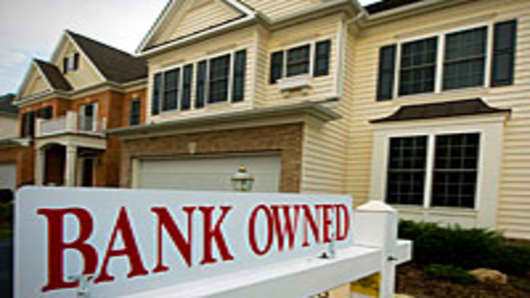Not to sound like a broken record, but only when we work through the vast inventory and shadow inventory of foreclosed properties, can home prices bottom and housing recover overall. Obviously certain markets are more burdened by the distress than others, but it's a universal truth.
In April, however, the percentage of investors and all-cash buyers in the market dropped a bit. Investors have been buying the lion's share of foreclosures, as first-time home buyers continue to play a very small role in housing's recovery. First-time buyers should be about 40 percent of the market, but realtors say they are now about 36 percent. They made up nearly half of the market last Spring, but that was all thanks to the home buyer tax credit.
In addition to a tough job and mortgage market, first-time buyers are also looking at a lot of work when buying a foreclosed property.



